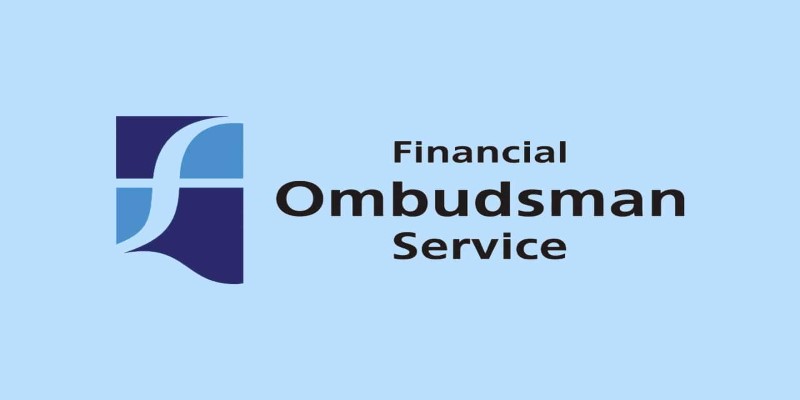Advertisement
If you’ve ever had an issue with a financial institution—whether it’s your bank, insurance company, or credit provider—you know how frustrating it can be to get it resolved. That’s where the Financial Ombudsman Service (FOS) comes in. It's a free, independent service that helps people settle complaints with financial services.

Think of it as a middleman that steps in when consumers and financial institutions can't agree on how to resolve a problem. By offering an impartial platform, the Financial Ombudsman Service helps restore fairness in disputes over services like banking, insurance, pensions, and more.
In this article, we’ll explore what the Financial Ombudsman Service is, how it operates, and how it can help individuals navigate the often-complex world of financial disputes.
The Financial Ombudsman Service can be described as a bridge between consumers and financial service providers in cases of a dispute. Essentially, its primary role is to provide a solution for complaints in an unbiased and effective manner. But what happens when you lodge a complaint with the FOS?
If there is any unfair treatment by a financial service provider, or when some aspect of the situation has been left unaddressed without any attempt to contact them, a consumer can also file a complaint with FOS. The FOS will then investigate, assess the issue impartially, and make some decisions on how the problem should be resolved. This may range from a refund, compensation, or requesting that the company adjust how it addresses particular concerns. The ruling by FOS is enforceable by law for the financial institution, but the consumer has no obligation to abide by the ruling if he disagrees with it. However, in practice, most institutions observe the ruling.
To make sure it’s fair, the service works on a "free for consumers" basis, meaning there are no charges for filing a complaint. This eliminates the need for costly legal representation and levels the playing field between individuals and large corporations.
Banking Issues: This can involve problems like incorrect charges, issues with loans or credit, fraud, or any breach of contract by the bank or financial institution. For example, if your bank fails to honor a direct debit or mishandles a loan application, you can seek assistance from the FOS.
Insurance Disputes: Whether it's health insurance, life insurance, or home insurance, the FOS can help if there’s a problem with claims or policy terms. If an insurance provider refuses to pay out a valid claim or treats a customer unfairly, the FOS steps in to resolve the dispute.
Pensions and Investments: Disputes regarding pensions or investments, such as mismanagement of funds, incorrect advice, or poor customer service, can also be resolved by the FOS. If you feel that your pension fund has been handled incorrectly or that you’ve been given bad investment advice, the service can offer a solution.

Consumer Credit and Mortgages: If you’ve had problems with your mortgage lender or a consumer credit company, such as a credit card provider, the Financial Ombudsman Service can assist. They deal with complaints involving things like unfair fees, inaccurate credit reports, or predatory lending.
Free Service: The FOS is entirely free for consumers to use. Unlike hiring a lawyer to settle a dispute, which can quickly become expensive, using the Ombudsman service doesn’t require any financial commitment.
Impartial Decision-Making: The FOS ensures that decisions are made based on fairness and impartiality. Its role is to listen to both parties and make a recommendation that’s rooted in the facts, without bias.
Speed: Compared to lengthy court cases, the Financial Ombudsman Service typically resolves cases faster. While complex cases may take longer, it is still generally quicker than traditional legal channels.
Accessible: The FOS is designed to be user-friendly, with a simple process for filing complaints. You don’t need to understand complex legal language or procedures. The service is geared toward helping everyday people resolve their issues.
Binding Decisions: If the Financial Ombudsman makes a decision, the financial institution must comply. This provides consumers with a sense of confidence that their complaints will be taken seriously and resolved fairly.
Attempt to Resolve the Issue Directly: Before reaching out to the FOS, the first step is to contact your financial institution. Most companies have a formal complaints process that must be followed before you can escalate the issue. You should give them a reasonable amount of time (usually eight weeks) to resolve the issue.
Contact the Financial Ombudsman: If the issue isn’t resolved or you’re unsatisfied with the resolution, you can contact the FOS. They have an online portal, phone lines, and even email options for lodging complaints. You’ll need to provide details about your case, including any supporting documents.

Investigation and Resolution: Once your complaint is submitted, the FOS will assess the situation. They may ask for additional information from both you and the financial institution. After reviewing everything, they’ll either offer a resolution or recommend further steps if needed.
Outcome: If the Financial Ombudsman Service rules in your favor, the financial institution will be required to follow the decision, which could involve compensating you or taking corrective actions. If you disagree with the decision, you can appeal, but the process is often much less complex than court action.
The Financial Ombudsman Service plays a crucial role in helping consumers who are caught in disputes with financial institutions. It provides an impartial, accessible, and free service that makes it easier for individuals to resolve complaints without needing to resort to expensive and time-consuming legal action. Whether it's a dispute over banking issues, insurance claims, or investment advice, the FOS helps to ensure that consumers have a fair and equal opportunity to resolve their issues. For anyone facing financial disputes, the Financial Ombudsman Service offers a valuable resource for finding a resolution.
Advertisement

By Susan Kelly/Dec 28, 2024

By Mason Garvey/Mar 16, 2025

By Celia Shatzman/Nov 14, 2024

By Madison Evans/Mar 18, 2025

By Celia Shatzman/Dec 06, 2024

By Elva Flynn/Mar 17, 2025

By Mason Garvey/Mar 16, 2025

By Martina Wlison/Nov 14, 2024

By Sid Leonard/Nov 13, 2024

By Isabella Moss/Nov 14, 2024

By Tessa Rodriguez/Mar 01, 2025

By Georgia Vincent/Dec 28, 2024